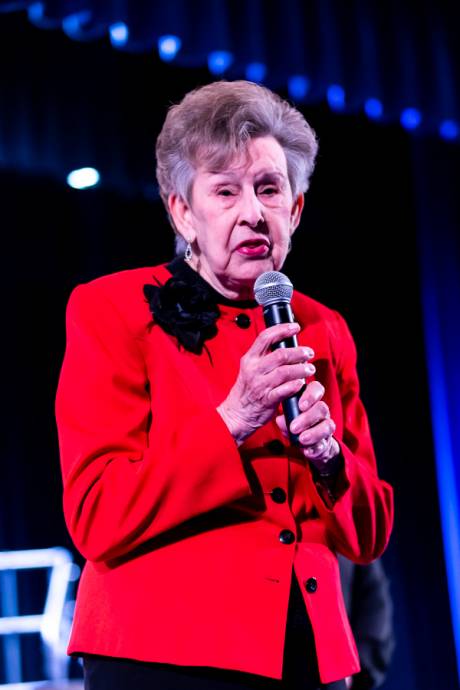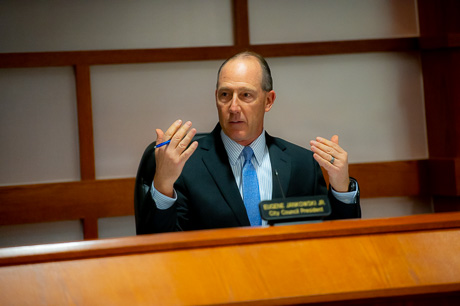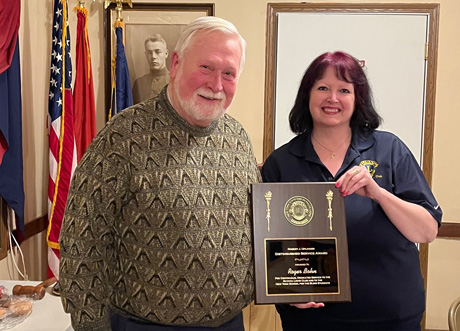GCC history teacher tells the complex story of Gen. Sherman in 'Man of Fire'
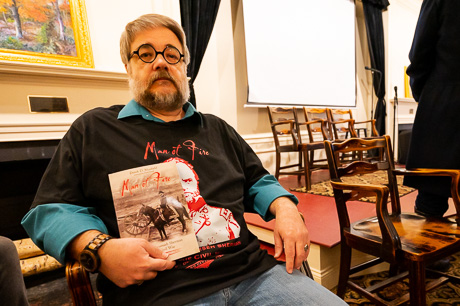
We all know -- or should -- that Sherman burned Atlanta, but like all historical characters who have become more myth than human, there is more to General William Tecumseh Sherman than his march to the sea during the Civil War.
The Ohio native was an intellectual, insightful man with a keen understanding of human character, said Derek Maxfield, a GCC history teacher who has written a 160-page biography of Sherman.
GO ART! hosted a reception on Friday evening to celebrate the release of "Man of Fire," published by Savas Beatie as part of the Emerging Civil War Series.
"Somebody like Sherman is a lot more complex than what popular culture makes him out to be, and that was part of one of the reasons I wanted to write this book," Maxfield said. "Here's a character who is not that simple."
In popular culture, Sherman is remembered for burning nearly all of Atlanta to the ground on Nov. 15, 1864, largely because of Gone with the Wind. From Atlanta, Sherman marched his Union soldiers to Savannah (the March to the Sea) as they destroyed everything in their path.
"I think one of the tasks of a good biographer is to make somebody more human, make them more easily understood," Maxfield said.
It as tough, Maxfield said, capturing somebody as complex as Sherman in 40,000 words, but he thinks he's produced the best short biography yet of the Union general.
This is the first biography written by Maxfield but his second book. Previously, he wrote "Hellmira: The Union's Most Infamous Civil War Prison."
Among Sherman's more positive traits, Maxfield said, was his intellectual strength.
"He used to love to quote Shakespeare, so he was very literate, and I think that part of him is lost," Maxfield said. "He is known as this arsonist and barbarian, at least to the South, and even some of his partisans want to remember him that way. I think it does him a disservice because he's probably the most intellectual of all of the generals in the Union Army.
"I also think that he had a deeper understanding of people than many in the administration, perhaps save Lincoln. I think that, ultimately, that understanding of human nature is one of the keys to the Union victory because he could understand how to break the will of the Confederacy and end the war sooner."
The most unredeemable aspect of Sherman's life, Maxfield said, came after the Civil War.
"I think you have to be careful judging people of another time and place by 21st-Century values, but the thing that punches me in the gut is he's the author of a federal policy in the late 19th Century to kill the buffalo in order to subdue the Plains Indians," Maxfield said. "That's the one that I find the most unredeeming."
The book, Maxfield hopes, will find an audience among people with an emerging interest in the Civil War while also appealing to people who have already read a good deal about the war between the states.
"I always envisioned it as a general audience book for somebody who might not even know a lot about the Civil War," Maxfield said. "I was aiming kind of broadly, but certainly anybody who has an interest in the Civil War, I would hope that they would find this of value."
For more about the book, click here.
Photos by Howard Owens. First and second photos, Derek Maxfield.
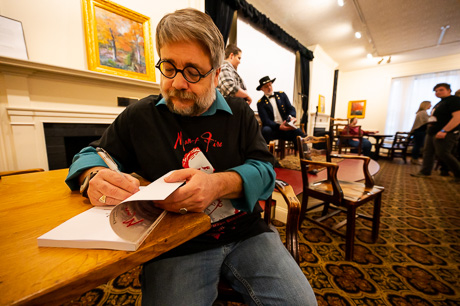
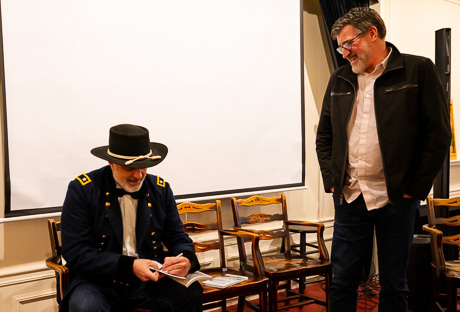
Tracy Ford, actor and teacher, dressed above as Sherman, wrote an essay published at the end of the book entitled "Becoming Sherman." He's signing a copy for fellow actor Daniel Snyder, who played Arthur Brisbane in the one-act play written and produced by Derek Maxfield, Brothers at Odds: The Brisbane Story







